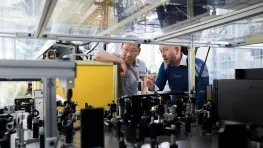Detailed Factory Audit: A Comprehensive Guide to Quality and Compliance
Modified on:
Detailed Factory Audit: A Comprehensive Guide to Quality and Compliance
A detailed factory audit is an essential process for companies looking to ensure their suppliers meet quality standards and regulatory requirements. Whether for production readiness, safety compliance, or sustainability practices, factory audits play a critical role in safeguarding a company’s reputation and product quality. This in-depth evaluation involves assessing every aspect of a factory’s operations, from production lines to labor practices. By conducting a thorough factory audit, businesses can identify potential risks, prevent costly mistakes, and ensure that the goods produced are of the highest standards. In this blog, we will explore the importance of detailed factory audits, the steps involved, and the benefits they bring to your business.
About Detailed Factory Audits
What Is a Detailed Factory Audit?
A detailed factory audit is a comprehensive inspection of a manufacturing facility that evaluates its processes, quality control measures, labor conditions, and environmental impact. The main objective is to assess whether the factory meets the required standards and if it complies with international regulations and industry best practices.
The Key Components of a Factory Audit
When conducting a detailed factory audit, inspectors examine several key components to ensure a thorough evaluation. First, the production process is scrutinized to ensure that goods are produced efficiently and meet the required quality standards. Inspectors also assess the factory’s health and safety compliance, checking that the working environment is safe for employees and that proper safety protocols are followed.
Why Factory Audits Are Essential for Businesses
Factory audits provide businesses with valuable insights into their supply chain and manufacturing processes. They help identify potential risks, such as substandard products, unsafe working conditions, or violations of environmental laws, which could lead to costly mistakes or damage to a company’s reputation.
How to Conduct a Detailed Factory Audit
Conducting a detailed factory audit typically involves several stages, starting with preparation. This includes gathering all relevant documentation, such as production schedules, safety records, and compliance certificates, before the on-site inspection.
Common Challenges in Conducting Factory Audits
While factory audits are essential, they often come with challenges. Language barriers and cultural differences between auditors and factory staff can sometimes create communication issues that hinder the audit process. Resistance from factory management is another common challenge, as they may be reluctant to disclose certain information or allow full access to their operations.






